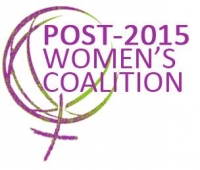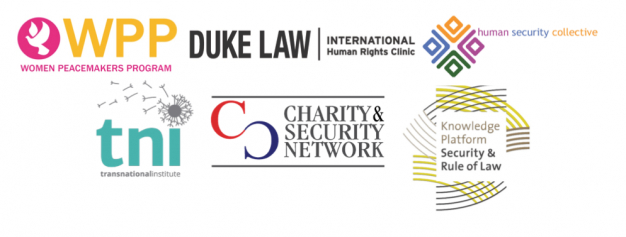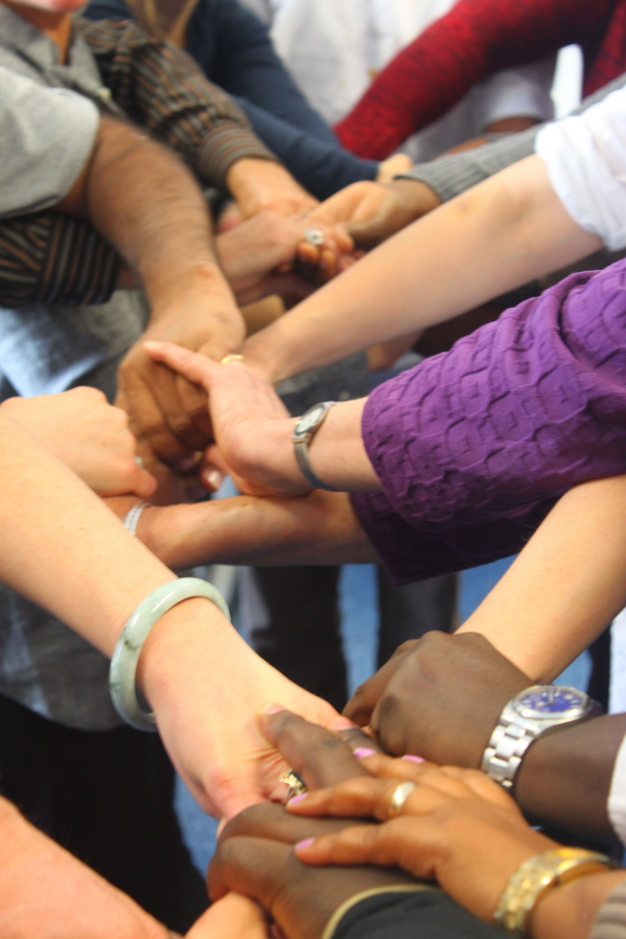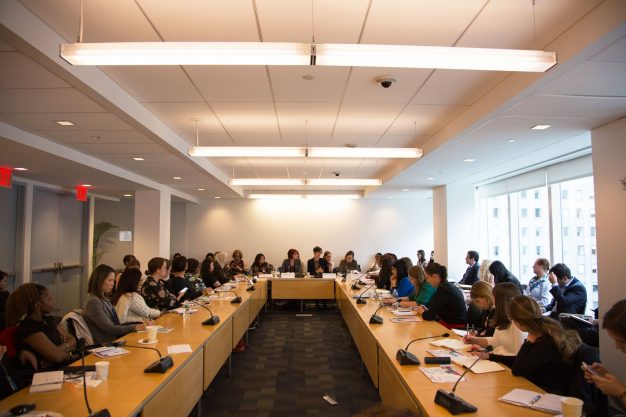 The Post 2015 Women's Coalition, with the Women Peacemakers Program as an active member, delivered an oral statement on March 20 during the general discussion session of the Commission on the Status of Women. The statement was presented by Nebila Abdulmelik from FEMNET. We are very happy that this transformative message was delivered at the CSW!
The Post 2015 Women's Coalition, with the Women Peacemakers Program as an active member, delivered an oral statement on March 20 during the general discussion session of the Commission on the Status of Women. The statement was presented by Nebila Abdulmelik from FEMNET. We are very happy that this transformative message was delivered at the CSW!
More information about the Post 2015 Women's Coalition on their website
Your Excellencies,
As we near the end of the Millennium Development Goals (MDGs), it is essential that the future development agenda be explicitly shaped by, and grounded in, human rights and environmental sustainability, ensuring gender equality, the realization of women’s rights and women’s empowerment. We, as the Post 2015 Women’s Coalition seek fundamental structural and transformational changes informed by the concrete realities of women across the life cycle. It must tackle intersecting and structural drivers of inequalities, and multiple forms of discrimination based on gender, age, class, caste, race, ethnicity, place of origin, cultural or religious background, sexual orientation, gender identity, health status and abilities.
One of the strengths of the MDG framework is its focus on time bound goals and targets, though there are significant weaknesses and omissions in many of the indicators used to chart progress. Clear weaknesses of the framework are that the goals, targets and indicators: (i) only apply to developing countries; (ii) ignore economic inequality within and between countries; and (iii) detach development from accountability mechanisms provided by human rights. A clear weakness in the goal of promoting gender equality and women’s empowerment is a lack of focus on realizing women’s rights.
We support the call for a standalone goal for gender equality and call for a transformative process for the promotion of gender, economic, social and environmental justice and peaceful societies. The changes and the realities on the ground make it clear that the post 2015 sustainable development agenda must focus on the enabling environment and economic structures that limit the realization of women’s rights. Progress towards ending poverty from an intersectional approach, the prevention and elimination of all forms of violence against girls and women as well as links between gender-based violence and impunity, militarization, military spending, and the prevalence of small arms must be addressed if meaningful gains are to be made. It is critical to recognize that there can be no development without disarmament and the full and equal participation of women.
Furthermore, discriminatory gender stereotypes result in, and perpetuate, the unequal distribution of care work, thereby impacting on women’s equal enjoyment of a wide range of interlinked rights, including to decent work, education and health. Thus, there is a need to transform the gender division of labour by expanding care services and redistributing paid and unpaid work; eliminating inequalities in resource control and ownership; as well as ensuring universal primary education and parity of access.
We believe that a genuine new global partnership would have those most marginalized, women of the global south at the center, and ensure truly democratic processes, transparent decision making and accountability; linked to existing human rights accountability mechanisms at the regional and global levels. In this multipolar scenario, governments and the United Nations must be honest about the regulations necessary to hold corporations to account. Business as usual is no longer a viable option!
In moving forward, we recommend that a human rights approach to sustainable development processes be strengthened through enhanced recognition of state obligations to respect, protect, and fulfill women’s human rights, including their sexual and reproductive rights, gender equality and women’s empowerment. We call for a change in the current policies of international institutions that serve to entrench inequalities through neoliberal reforms that leave countries struggling to meet their sustainable development objectives. Its is up to you [Member States] to ensure that post 2015 agenda will be a time of people, and in particular women and girls above profits.
12 Dec '17 Today, we are pleased to share with you the Conference Report “Financial Inclusion for Freedom and Security” by the Women Peacemakers Program, Duke Law International Human Rights Clinic, Human Security Collective, Transnational Institute, the Charity & Security Network, in cooperation with the Knowledge Platform Security and Rule of Law.

7 Dec '17 Today, on the 13th day of the 16 Days of Activism Against Gender Violence Campaign, we bring you the sad news that from 15 December onwards, the Women Peacemakers Program (WPP) will have to close its doors. We would like to ask for your time to read what has driven us to make this decision.

7 Nov '17 On Thursday, 26 October 2017, a side event entitled, “Pulling the Rug from Under Our Feet: What is the UNSCR 1325 Without Civil Society Freedoms?” was hosted on the margins of the 17th anniversary of United Nations Security Council Resolution (UNSCR) 1325. The event was hosted by the Women Peacemakers Program (WPP) and the Dutch Mission, in collaboration with Duke Law’s International Human Rights Clinic, Al-Hayat Center for Civil Society Development, Arab Women Organisation of Jordan, NOVACT, Free Sight Association, Iraqi Al-Amal Association, Women Empowerment Organisation, NGO Working Group on Women, Peace and Security and Women’s International League for Peace and Freedom. This article briefly looks at the main issues discussed during the event.
